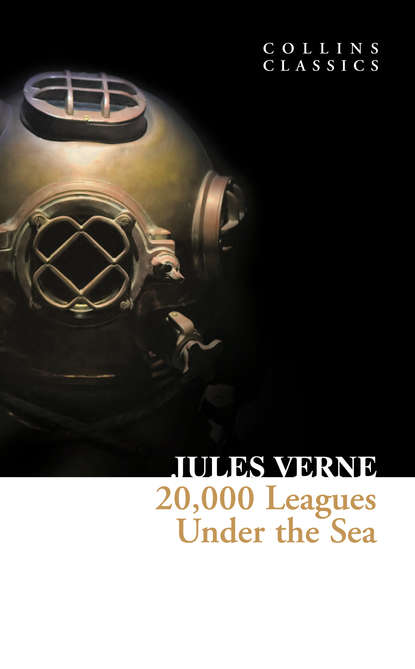По всем вопросам обращайтесь на: info@litportal.ru
(©) 2003-2024.
✖
20,000 Leagues Under The Sea
Настройки чтения
Размер шрифта
Высота строк
Поля
All round this basin were elegant glass cases, fastened by copper rivets, in which were classed and labelled the most precious productions of the sea that had ever been presented to the eye of a naturalist. My delight as a professor may be imagined. I saw there a collection of inestimable value. Amongst these specimens I quote from memory the elegant royal hammer-fish of the Indian Ocean, with its white spots standing out brightly on a red and brown ground; an imperial spondyle, bright-coloured, and bristling with spikes, a rare specimen in the museums of Europe, and the value of which I estimated at £800; a hammer-fish from the Australian seas, only procured with difficulty; fragile white bivalve shells that a breath might blow away like a soap-bubble; several varieties of the Java aspirgillum, a sort of calcareous tube, edged with leafy folds, much prized by amateurs; a whole series of trochi, some a greenish yellow, found in the American seas; others of a reddish brown, natives of Australian waters; others from the Gulf of Mexico, remarkable for their imbricated shells: and, rarest of all, the magnificent New Zealand spur.
Apart and in special apartments were chaplets of pearls of the greatest beauty, which the electric light pricked with points of fire; pink pearls, torn from the pinnamarina of the Red Sea; green pearls from the haliotyde iris; yellow, blue, and black pearls, the curious productions of different molluscs from every ocean, and certain mussels from the watercourses of the North; lastly, several specimens of priceless value, gathered from the rarest pintadines. Some of these pearls were bigger than a pigeon’s egg, and were worth more than the one Travernier sold to the Shah of Persia for 3,000,000 francs, and surpassed the one in the possession of the Imaum of Muscat, which I had believed unrivalled.
It was impossible to estimate the worth of this collection. Captain Nemo must have spent millions in acquiring these various specimens, and I was asking myself from whence he had drawn the money to gratify his fancy for collecting, when I was interrupted by these words: – ‘You are examining my shells, professor. They certainly must be interesting to a naturalist, but for me they have a greater charm, for I have collected them all myself, and there is not a sea on the face of the globe that has escaped my search.’
‘I understand, captain – I understand the delight of moving amongst such riches. You are one of those people who lay up treasures for themselves. There is not a museum in Europe that possesses such a collection of marine products. But if I exhaust all my admiration upon it, I shall have none left for the vessel that carries it. I do not wish to penetrate into your secrets, but I must confess that this Nautilus, with the motive power she contains, the contrivances by which she is worked, the powerful agent which propels her, all excite my utmost curiosity. I see hung on the walls of this room instruments the use of which I ignore.’
‘When I told you that you were free on board my vessel, I meant that every portion of the Nautilus was open to your inspection. The instruments you will see in my room, professor, where I shall have much pleasure in explaining their use to you. But come and look at your own cabin.’
I followed Captain Nemo, who, by one of the doors opening from each panel of the drawing-room, regained the waist of the vessel. He conducted me aft, and there I found, not a cabin, but an elegant room with a bed, toilet-table, and several other articles of furniture. I could only thank my host.
‘Your room is next to mine,’ said he, opening a door: ‘and mine opens into the saloon we have just left.’
I entered the captain’s room; it had a severe, almost monkish aspect. A small iron bedstead, an office desk, some articles of toilet – all lighted by a strong light. There were no comforts, only the strictest necessaries.
Captain Nemo pointed to a seat.
‘Pray sit down,’ he said.
I obeyed, and he began thus: –
CHAPTER 12 Everything by Electricity (#ulink_ec88cbe7-524e-5e42-bfb2-f3c7b7eae462)
‘Sir,’ said Captain Nemo, showing me the instruments hung on the walls of the room, ‘here are the instruments necessary for the navigation of the Nautilus. Here, as in the saloon, I have them always before me, and they indicate my position and exact direction in the midst of the ocean. You are acquainted with some of them.’
‘Yes,’ I answered; ‘I understand the usual nautical instruments. But I see others that doubtless answer the peculiar requirements of your vessel. That dial with a movable needle is a manometer, is it not?’
‘Yes, by communication with the water it indicates the exterior pressure and gives our depth at the same time.’
‘And these sounding-lines of a novel kind?’
‘They are thermometric, and give the temperature of the different depths of water.’
‘And these other instruments, the use of which I cannot guess?’
‘Here I ought to give you some explanation, professor. There is a powerful, obedient, rapid, and easy agent which lends itself to all uses, and reigns supreme here. We do everything by its means. It is the light, warmth, and soul of my mechanical apparatus. This agent is electricity.’
‘Yes, captain, you possess an extreme rapidity of movement which does not well agree with the power of electricity. Until now its dynamic force has been very restricted, and has only produced little power.’
‘Professor,’ answered Captain Nemo, ‘my electricity is not everybody’s, and you will permit me to withhold any further information.’
‘I will not insist, sir; I will content myself with being astonished at such wonderful results. A single question, however, I will ask, which you need not answer if it is an indiscreet one. The elements which you employ to produce this marvellous agent must necessarily be soon consumed. The zinc, for instance, that you use – how do you obtain a fresh supply? You now have no communication with the land?’
‘I will answer your question,’ replied Captain Nemo.
‘In the first place I must inform you that there exist, at the bottom of the sea, mines of zinc, iron, silver, and gold, the working of which would most certainly be practicable; but I am not indebted to any of these terrestrial metals. I was determined to seek from the sea alone the means of producing my electricity.’
‘From the sea?’
‘Yes, professor, and I was at no loss to find these means. It would have been possible, by establishing a circuit between wires plunged to different depths, to obtain electricity by the diversity of temperature to which they would have been exposed; but I preferred to employ a more practicable system.’
‘And what was that?’
‘You know the composition of sea-water? Chloride of sodium forms a notable proportion of it. Now it is this sodium that I extract from sea-water, and of which I compose my ingredients. Mixed with mercury it takes the place of zinc for the voltaic pile. The mercury is never exhausted; only the sodium is consumed, and the sea itself gives me that. Besides, the electric power of the sodium piles is double that of zinc ones.’
‘I clearly understand, captain, the convenience of sodium in the circumstances in which you are placed. The sea contains it. Good. But you still have to make it, to extract it, in a word. And how do you do that? Your pile would evidently serve the purpose of extracting it; but the consumption of sodium necessitated by the electrical apparatus would exceed the quantity extracted. You would consume more than you would produce.’
‘I do not extract it by the pile, professor. I employ nothing but the heat of coal.’
‘Coal!’ I urged.
‘We will call it sea-coal if you like,’ replied Captain Nemo.
‘And are you able to work submarine coal-mines?’
‘You shall see me so employed, M. Aronnax. I only ask you for a little patience; you have time to be patient here. I get everything from the ocean. It produces electricity, and electricity supplies the Nautilus with light – in a word, with life.’
‘But not with the air you breathe.’
‘I could produce the air necessary for my consumption, but I do not, because I go up to the surface of the water when I please. But though electricity does not furnish me with the air to breathe, it works the powerful pumps which store it up in special reservoirs, and which enable me to prolong at need, and as long as I like, my stay in the depths of the sea.’
‘Captain,’ I replied, ‘I can do nothing but admire. You have evidently discovered what mankind at large will, no doubt, one day discover, the veritable dynamic power of electricity.’
‘Whether they will discover it I do not know,’ replied Captain Nemo coldly. ‘However that may be, you now know the first application that I have made of this precious agent. It is electricity that furnishes us with a light that surpasses in uniformity and continuity that of the sun itself. Look now at this clock! It is an electric one, and goes with a regularity that defies the best of chronometers. I have divided it into twenty-four hours, like the Italian clocks, because there exists for me neither night nor day, sun nor moon, only this factitious light that I take with me to the bottom of the sea. Look! just now it is 10 a.m.’
‘Exactly so.’
‘This dial hanging in front of us indicates the speed of the Nautilus. An electric wire puts it into communication with the screw. Look! just now we are going along at the moderate speed of fifteen miles an hour. But we have not finished yet, M. Aronnax,’ continued Captain Nemo, rising, ‘if you will follow me we will visit the stern of the Nautilus.’
I followed Captain Nemo across the waist, and in the centre of the boat came to a sort of well that opened between two water-tight partitions. An iron ladder, fastened by an iron hook to the partition, led to the upper end. I asked the captain what it was for.
‘It leads to the boat,’ answered he.
‘What! have you a boat?’ I exclaimed in astonishment.
‘Certainly, an excellent one, light and unsinkable, that serves either for fishing or pleasure trips.’
‘Then when you wish to embark you are obliged to go up to the surface of the water.’
‘Not at all. The boat is fixed on the top of the Nautilus in a cavity made for it. It has a deck, is quite water-tight, and fastened by solid bolts. This ladder leads to a man-hole in the hull of the Nautilus, corresponding to a similar hole in the boat. It is by this double opening that I get to the boat. The one is shut by my men in the vessel, I shut the one in the boat by means of screw pressure, I undo the bolts, and the little boat darts up to the surface of the sea with prodigious rapidity. I then open the panel of the deck, carefully closed before, I mast it, hoist my sail, take my oars, and am off.’
‘But how do you return?’
‘I do not return to it; it comes to me.’
‘At your order?’
‘At my order. An electric wire connects us. I telegraph my orders.’

















